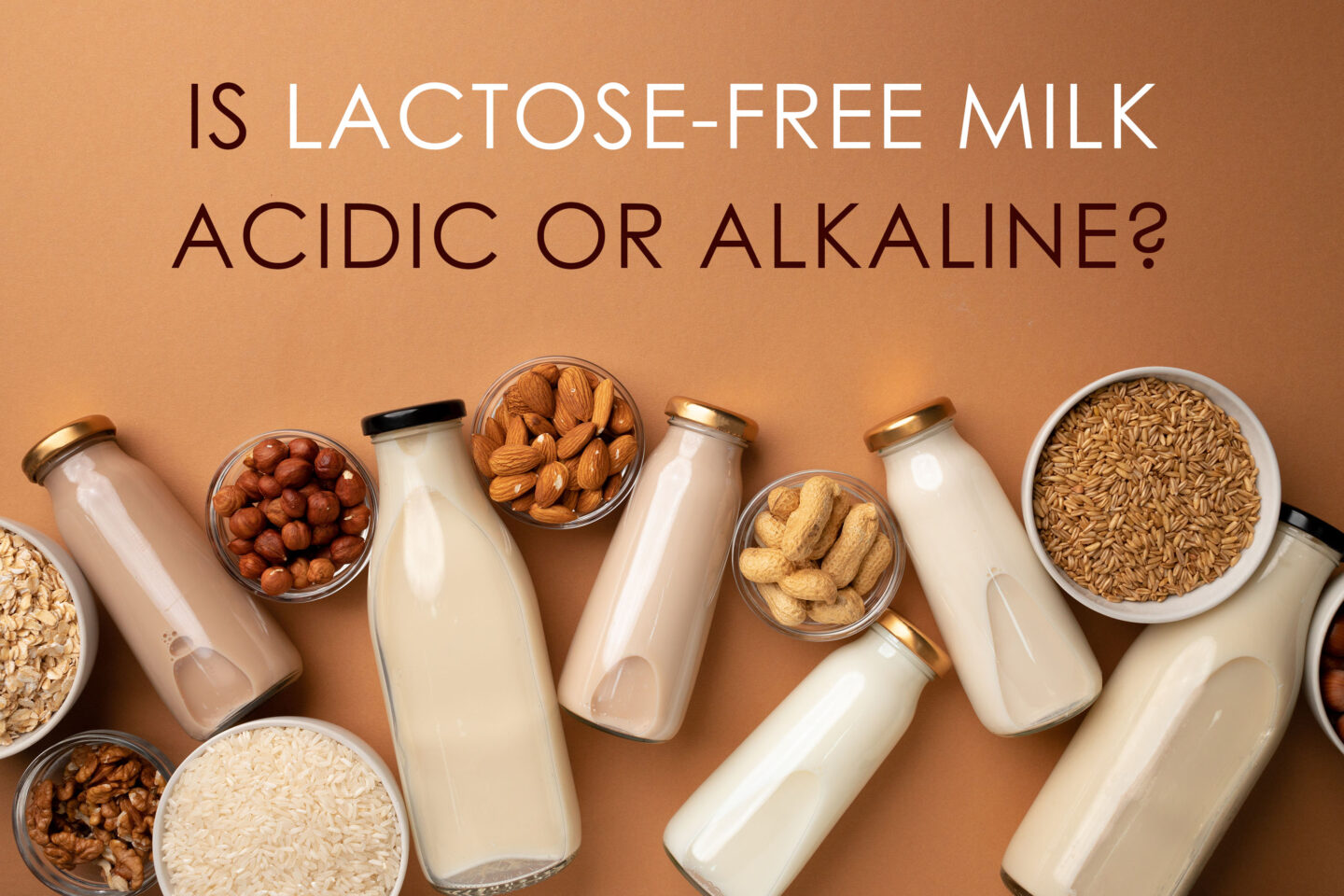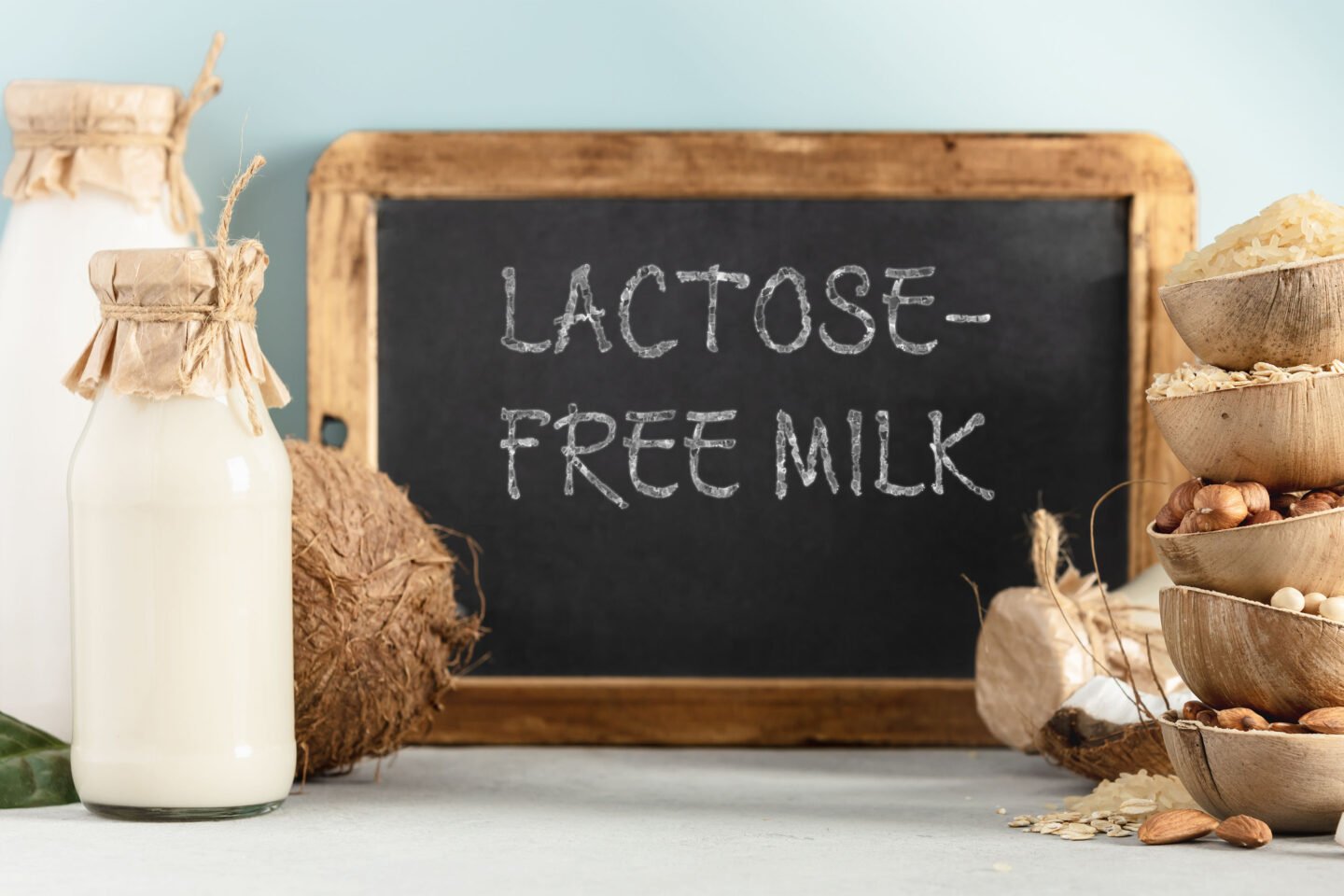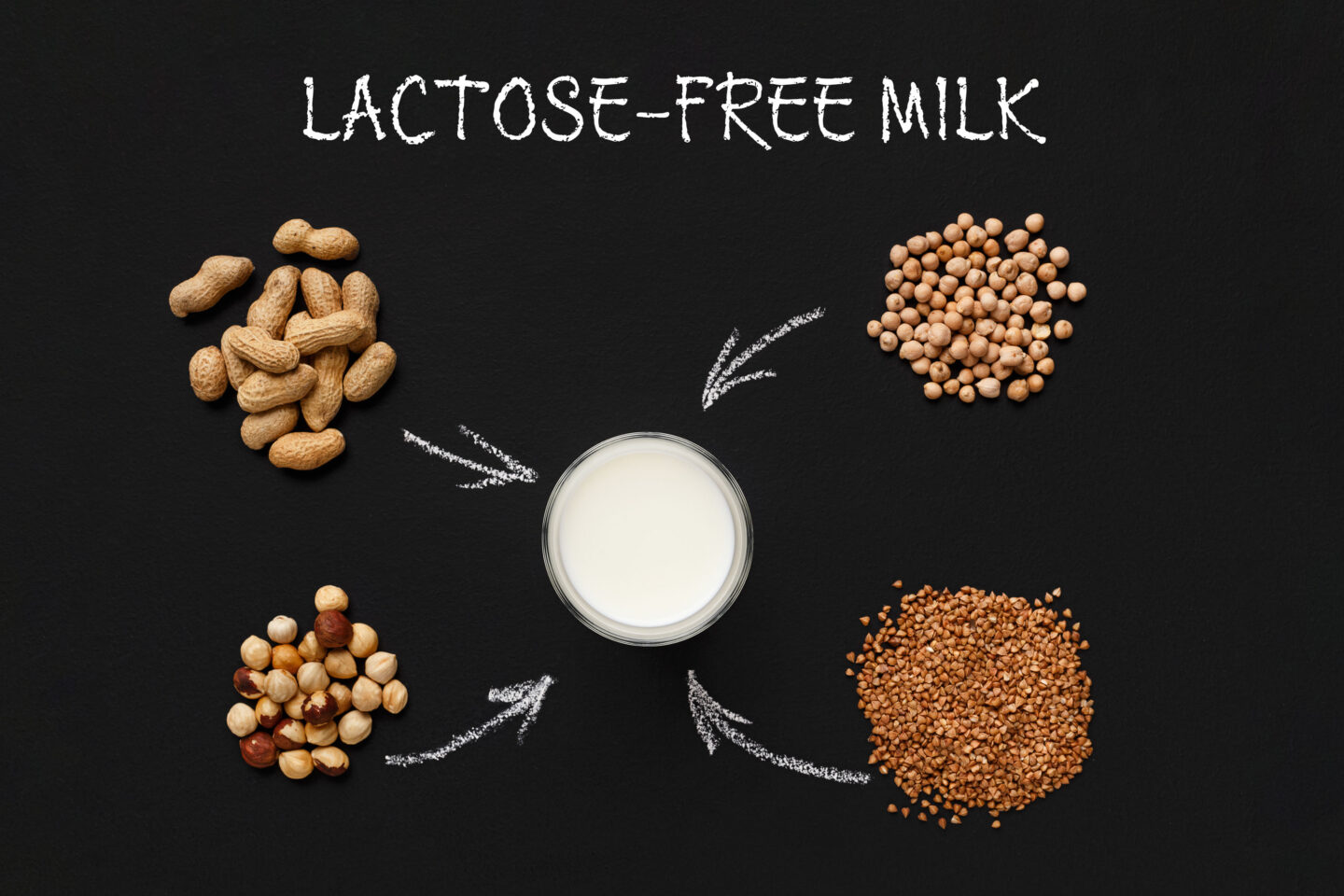Nowadays, there are many alternatives to cow's milk, including plant milks and milk from other animals. Many of these are just as healthy as cow's milk, but if you suffer from acid reflux or GERD, you're likely more concerned if they're acidic or likely to trigger your symptoms.

Some milks are more acidic than others and can also be acid-forming, making them more likely to trigger or worsen acid reflux symptoms.
How well does lactose-free milk fit into a low-acid diet?
Table of Contents
Is Lactose-free Milk Acidic?
Lactose-free milk is acid-forming, meaning it's likely to aggravate acid reflux and GERD symptoms. However, it's less acidic than other types of milk, particularly those high in lactose.
What Is the pH of Lactose-free Milk?
Lactose-free milk has a pH between 6.00 and 7.00, close to neutral. However, it's acid-forming, which may stimulate stomach acid production, causing heartburn and other uncomfortable symptoms.
Is Lactose-free Milk Healthy?

A cup of lactose-free milk contains approximately 146 calories and less fat than some other milks.
It's also an excellent source of calcium, which contributes to bone health and a robust immune system. Calcium also supports heart, muscle, and nerve functions.
Calcium, along with vitamin D, may help protect you from cancer, diabetes, and high blood pressure.
Lactose-free milk is also a good source of potassium, which works with sodium to balance the electrolyte levels in your body, keeping it hydrated. It also aids muscle contractions, nerve function, and reduces blood pressure and water retention.
It's essential to get some potassium in your diet; however, some people may need to limit their intake, particularly those with kidney issues.
Lactose-free milk contains a lot of vitamin A, which protects your eyes, supports your immune system, and reduces the risk of acne.
Studies show that vitamin A aids beta-carotene absorption, a powerful antioxidant that is thought to lower the risk of cancers, including cervical, bladder, and lung; however, more research is needed.
Lactose-free milk is often enriched with vitamin D, which regulates the amount of calcium and phosphate in your body.
Vitamin D deficiency may lead to several severe bone conditions. It's a fat-soluble vitamin, so your body can store it longer.
Is Lactose-free Milk Bad for Acid Reflux?

As it's acid-forming, lactose-free milk may aggravate your acid reflux. It's also high in sugar, so it may stimulate gastric acid production.
However, it may be a good choice for acid reflux sufferers who are lactose intolerant.
Which Milk is Better Than Lactose-free for Acid Reflux?
Coconut milk and almond milk are better for acid reflux than lactose-free milk. They're both alkaline-forming, meaning they help neutralize stomach acid, alleviating acid reflux and GERD symptoms.
They're also rich in vitamins and nutrients and are an excellent choice for those on a plant-based diet.
Don't know what to drink? Check out these articles: 20 Most and Least Acidic Juices and 20+ Alcoholic Drinks Ranked by Acidity Level
